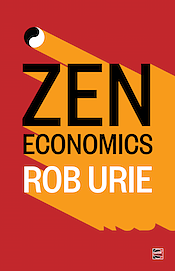“After what came out after the meeting between Netanyahu and Trump, I am not exaggerating if I say that yesterday there was a semi-official announcement of the death of the path of negotiations.”
— Sayyed Hassan Nasrallah, Feb 16, 2017
It was supremely wicked, and rapidly meandered into horse muddied waters. US President Donald J. Trump had openly expressed what many a US politician has felt but avoided for the sake of false decency: the two-state solution regarding Israel and Palestine was “a bad idea”. There was only one supremo in this fight, and it certainly did not entail the downtrodden in Gaza or the West Bank.
In his consistently inconsistent manner before a press corps he has come to loathe, Trump also claimed that he could, “live with two-state or one-state”: “I’m looking at two-state and one-state and I like the one both parties like. I’m very happy with the one that both parties like.”
Another comment, of the same ilk, was equally gravity defying. “I thought for a while it looked like the two-state, looked it may be the easier of the two, but honestly if Bibi and if the Palestinians, if Israel and the Palestinians are happy, I’m happy with the one they like the best.”
Not exactly high flying wisdom, given Israeli Prime Minister Benjamin Netanyahu’s general reluctance about giving ground on the issue, or mixed Palestinian stances on the subject. The general US approach to this has been to back Israel with few qualifications and insist that both sides yield in some undefined manner.
The tone has varied at stages, be it the Clinton guidelines set out at the Camp David summit or the meaningless “road map for peace” outlined at the Annapolis conference by George W. Bush. The Obama administration kept the circus going, with a few neat additions, and failed. The bitter icing on these fruitless efforts came from an indignant and frustrated Secretary of State, John Kerry.
Veteran Palestinian negotiator and member of the Palestine Liberation Organisation Hanan Ashrawi was understandably baffled by this change in the air, though the air on this subject had already thickened with Trump’s election. “Accommodating the most extreme and irresponsible elements in Israel and in the White House is no way to make responsible foreign policy.”
A livid, ashen-looking Saeb Erekat saw even darker implications. “Those who believe that they can undermine the two-state solution and replace it with what I call one state two systems – apartheid – I don’t think in the 21st century they will get away with it. It’s impossible.” Fine sentiments indeed, though states continue “getting away” with atrocious conduct under the cover of law, provided they receive the relevant backing, or impotent complicity.
There was a moment when a bemused Netanyahu was faced with another observation from Trump: that Israel tread carefully on its illegal settlements, that great weapon that continues to render a two-state solution nugatory.
For Trump, the aggressive policy of continued building was perhaps not such a good idea, though there was nothing stopping the state of Israel from pushing on with it in cautious fashion. “I would like to see you pull back on settlements a little bit.” “The Art of the Deal!” exclaimed Netanyahu.
The Israeli Prime Minister has been pursuing his own variant of the deal, though there is very little artistic about it. In his Bar-Ilan University speech in 2009, Netanyahu accepted the two-state solution. Before the 2015 election, he changed his mind, only to repudiate that stance after he won a fourth term. His current approach is to render any discussion about the Jewish settlement problem irrelevant to the main discussions with the Palestinians.
Such a position is also allied to another, more invidious approach: that of assuming that the Palestinians in the West Bank and Gaza are simply incapable of unifying on the issue of how best to pursue a two-state solution. The comment from Abba Eben has become something of a reflex: “The Palestinians never miss an opportunity to miss an opportunity.”
Divided, the Palestinian house has effectively fallen on the sword of a perceived Realpolitik: that a true stance to negotiate over would assume that Israel also include the occupied territories, but within a secular arrangement of equal rights. (This has a certain sinister tone of being different yet equal, though it seems to have wings in some circles.)
Even Erekat noted that vision of “one single secular and democratic state with equal rights for everyone, Christians, Muslims and Jews, on all of historic Palestine.” That would effectively ditch the notion of Israel as the supreme Jewish state, singular and exclusive, a stance that is nigh impossible to envisage.
It remains to be seen whether that fateful press conference buried the two-state idea with few funeral rites. If so, such a process can hardy banish the militant misery and indignation that Palestinians will continue to nurse and express. The implacable enemy within remains the most dangerous of all.











